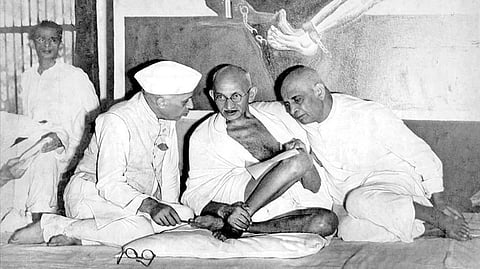Sixteen Stormy Days: Tripurdaman Singh fills gaps in the riveting story of India’s First Amendment
In Sixteen Stormy Days, historian Tripurdaman Singh explores the reasons former Indian Prime Minister Jawaharlal Nehru amended the Indian constitution barely six months after it was adopted. The author tells Anand Raj OK how the resulting First Amendment seriously damaged individual rights, but believes that history is rarely ever repeated
Last updated:
9 MIN READ

Sixteen
Stormy Days
Friday
Sign up for the Daily Briefing
Get the latest news and updates straight to your inbox
Up Next



